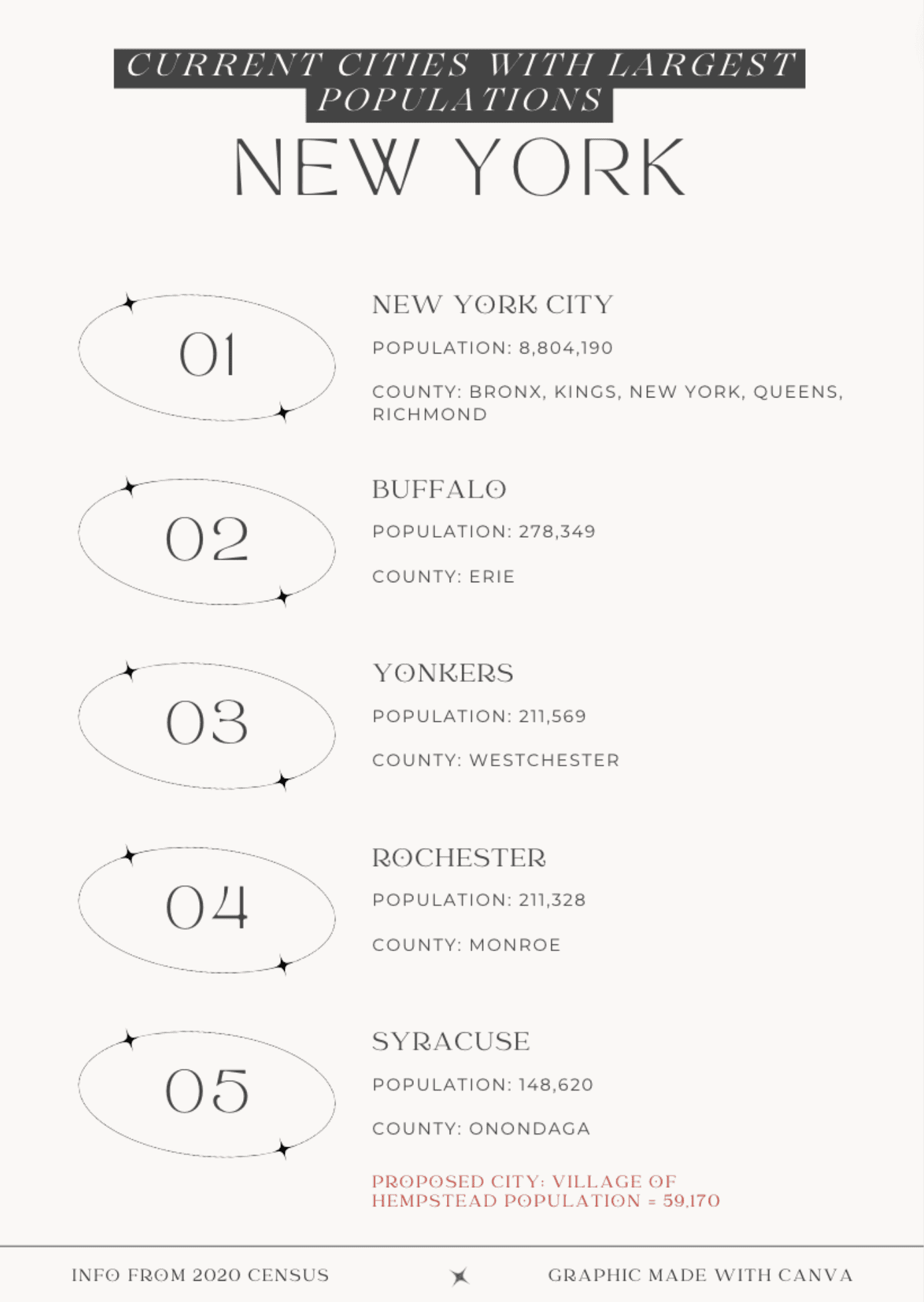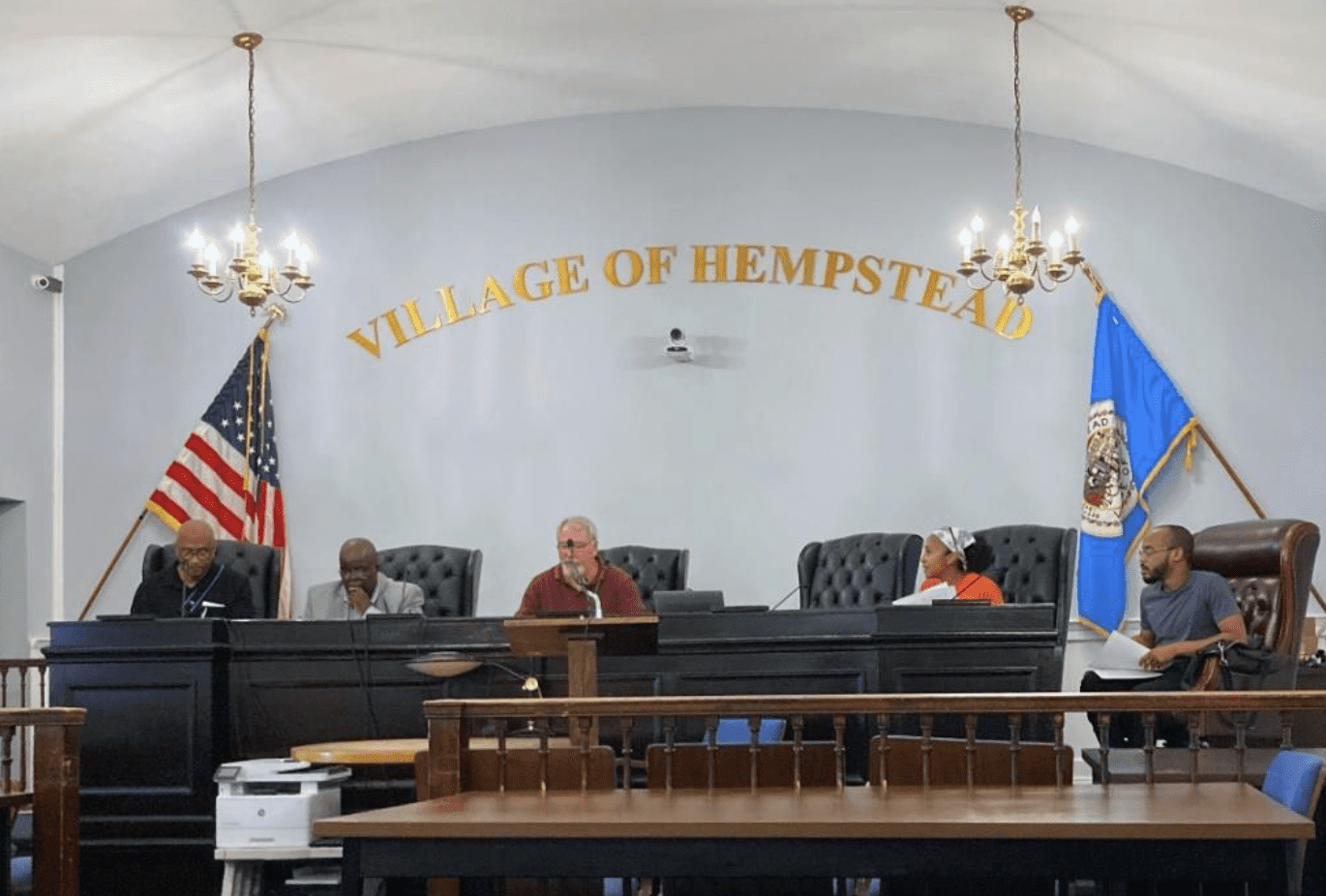By Simran Desai
With a population of nearly 60,000, the Village of Hempstead is amost double the size of the City of Long Beach, but Long Beach receives significantly higher amounts of state aid because of its status as a city. That is among the reasons that Hempstead Village officials are seeking to incorporate the village as a city. The Hempstead Charter Review Commission recently met to discuss.
Dianne Ralph, a 15-year Hempstead Village resident and Hempstead City Charter Commission member, said incorporation as a city could help attract new businesses to the area. In an interview outside the September charter meeting, Ralph noted, “There isn’t a single salad place in Hempstead.”
Supreme Mathematics, another City Charter Commission member, said he, too, would like to see Hempstead become a city. “I’ve lived in Hempstead for over 40 years, and I know what Hempstead was and what Hempstead can be,” he said.

At the meeting, commission members discussed what shape the elected government might take if Hempstead were to become a city. Elected positions must be decided on and a charter drafted and finalized before a proposal can be presented to the public and voted on in a village-wide referendum. Mathematics said the new proposed charter is still in the beginning stages of development and residents can expect another year or more until it is finalized.
Both Ralph and Mathematics discussed the potential benefits of becoming a city, with the biggest being more state and federal funding. With greater funding, Ralph said she believes, businesses that people need would have greater interest in setting up shop in Hempstead’s downtown, adding that Hempstead residents deserve nice places to shop and eat out.
Other commission members at the September meeting included Raymond Gomes, Xavier Gooding, Chasidy Kennedy, the chairwoman, and William Miller. All agreed that Hempstead is due for a revitalization.
There was some disagreement, however, over how Hempstead officials would be elected under a city charter, with half of commission members saying there should be a ward system in which residents would vote in for-seat elections and others who said elections should be at large, meaning all candidates for a particular office would run against one another and the highest vote-getters would win.
Mathematics said he believes in the ward system. Elected officials, he said, would “be someone who lives in the community, who is a part of that community.”
Currently, the village has four village board members who were elected under an at-large system. One of these is Kevin Boone, who was also present at this meeting. Boone said he opposes wards because they would make Hempstead more “segmented” than it already is. “You still will have too many separate entities, instead of people coming together,” he said in an interview.
Mathematics argued that a ward system would give people a better opportunity to have their voices heard by their representatives.
If people believe their voices are not being heard, “that hurts,” Boone said. “That tells me something is wrong. Maybe I am not doing something.” Boone said he believes it is the trustees’ job is to ensure people are being heard, and in a city setting the elected officials should do the same.
“I’ve lived in Hempstead for over 40 years, and I know what Hempstead was and what Hempstead can be.”
Supreme Mathematics, Hempstead City Charter Commission member
Mathematics explained how cities receive sales tax revenue directly, rather than having it filtered through the state. Boone added that Hempstead’s infrastructure could be improved under a city. Additionally, the charter must delineate how funding for education and transportation, including roads, would be allocated.
The next meeting of the City Charter Commission is scheduled for Thursday, Oct. 12, at 6:30 p.m. at Hempstead Village Hall. It will be open to the public. Boone urged residents to attend with their questions.







